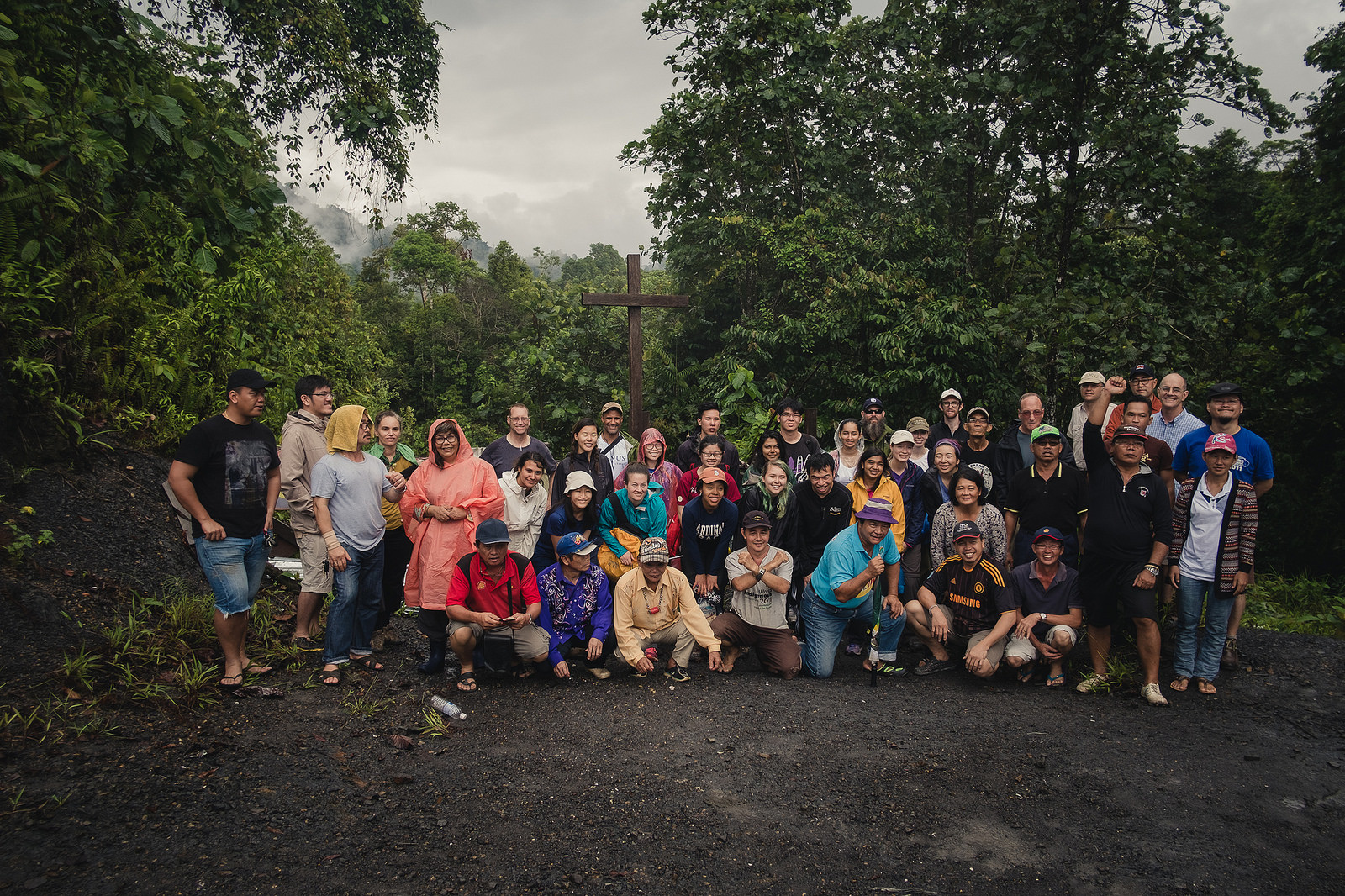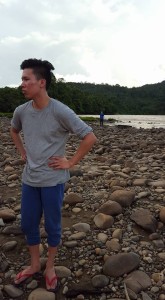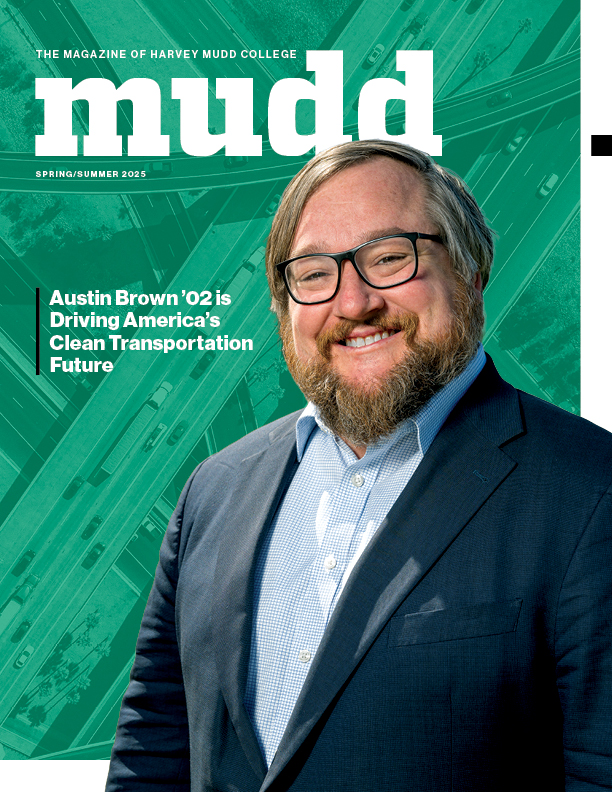EnviroLab Asia Trip Highlights Urgent Environmental Concerns
March 21, 2016
A multidisciplinary lens provided an eye-opening perspective for researchers from The Claremont Colleges and Yale-NUS who traveled to Singapore and Malaysian Borneo in January to study the relationship between deforestation, oil palm and marine life in Southeast Asia.
The Jan. 4–13 trip was the first for EnviroLab Asia, a five-college initiative based at Claremont McKenna College (CMC) and a laboratory for cross-disciplinary research and experiential learning about the relationships between environment, human agency and social processes in Asia. The Claremont Colleges-Yale-NUS team conducted fieldwork and interviews, and work is underway to see what scientific processes behind deforestation influence haze issues and the overall quality of life (both human and animal) in Southeast Asian countries. The trip also provided on-the-ground research for projects being carried out by the EnviroLab Asia Research Clusters, groups of researchers who are studying the interaction of spaces in Asia, especially the interaction between the space of political economy and environmental space.
Along for the trip was a multidisciplinary group of eight students and eight faculty members from The Claremont Colleges (EnviroLab Asia Fellows), including Harvey Mudd engineering major Fernando Salud ’17 and Harvey Mudd Professor of Media Studies Rachel Mayeri. A group of 14 from Yale-NUS (a liberal arts college in Singapore and an EnviroLab Asia partner) joined the Claremont contingent in Singapore and Borneo.
On the island of Borneo, the students traveled to areas outside the city of Miri, in the state of Sarawak, to investigate how deforestation policies have impacted the natural landscape and indigenous communities.
“We had a fantastic, eye-opening workshop with SAVE Rivers, which is protesting against the construction of the Baram Dam,” says CMC Associate Professor of History Albert Park, an EnviroLab Asia principal investigator. “We learned about the environmental issues in Sarawak, Borneo, and heard about the connections between environmental and political issues.”
In Malaysian Borneo (Sarawak), the students worked with a local NGO, Baram Kini, to visit sites related to deforestation, oil palm and other serious environmental issues like the dam construction that could impact hundreds of villages in the Baram area. Baram Kini arranged for EnviroLab Asia Fellows to stay in villages and talk with people affected by the various issues being studied. “We visited an oil palm plantation to learn more about the industry as well as the issues faced by indigenous people who are trying to prevent the takeover of their lands by oil palm corporations,” says Park. Malaysia and Indonesia account for more than 90 percent of global palm oil production.
“I imagined Borneo to be a place of untrammeled wilderness,” says Mayeri, whose work bridges the disciplines of scientists and artists. “On our way through Sarawak, Malaysia, we drove on logging roads for five hours and still didn’t reach primary forest. The forest has been logged, burned and transformed into one crop, the palm oil plantations. We saw hardly any birds or other animals, and that was really surprising and frankly pretty depressing to see. It’s one of the most important zones of biodiversity in the world, and there’s just very little primary forest left.”
In Singapore, students visited organic farms in order to learn more about food security and land tenure issues. They attended workshops with BirdLife International and the Wildlife Conservation Society to learn more about conservation efforts to save forests in Southeast Asia.
“We also had a productive meeting with Wilmar International, which is the largest producer of oil palm. We heard about their sustainability efforts. We held meetings with Wilmar and other organizations to gain a holistic—not one-sided—view of the issues we are studying,” Park says.
Land Rights
But perhaps the greatest insight about the problems facing Southeast Asia came from the villagers who live there. One of the biggest issues faced by the Dayak people in the Baram area is that of land rights and land tenure. According to Park, the Dayak people believe in Native Customary Rights (NCR), which are traditional rights over land.
“There is no documentation proving NCR because Dayak land is transferred, held and protected based on customs,” he says. “The Sarawak government and several corporations do not acknowledge NCR because it is not protected and sustained based on modern law. Hence, the government believes it can acquire the land without consent from the Dayak people in order to build a dam, which, according to many experts and NGOs, is unnecessary.”
The clash of tradition versus progressive modernism over land rights seems to be at the heart of environmental issues in the region. “In some ways, we connected the land issue to things happening in Singapore,” Park says. “For example, organic farms in Singapore have limited leases on their lands because the government always seeks to reclaim land for development and military purposes. We also learned from the people about how much they rely on the Baram River to sustain their daily lives.
“We also heard from them about how they try to create movements when they have little political power to achieve their goals of protecting their land,” he continues. “They are pushing their goals in the face of a government and corporations that have a large amount of power and resources.”
Experiential Learning
For students, the trip provided a new take on the subjects that many are studying.

“As an engineering major with a focus on environmental sustainability, I was surprised to see such impassioned opposition to the construction of a hydroelectric dam that would generate clean energy,” says Salud, shown left. “However, once I heard the protestors’ and villagers’ stories, I began to understand that issues like this are never black and white.”
Salud adds that the ongoing conversations students had with the local population, coupled with the immersive and intimate nature of the trip, opened his eyes to the many complexities involved in solving environmental issues through engineering, especially in the developing world.
“The success of an engineering solution goes far beyond how well designed it is. Social, cultural, historical and economic factors all come into play in determining whether a particular solution is the right fit for a certain time and place,” Salud says.
The on-the-ground experience offered lessons that cannot be found in textbooks.
“You design systems in the classroom or lab, yet you never actually see how your system will affect the people who use it and live near it. Witnessing such tension and injustice surrounding the proposed dam in Baram firsthand has inspired me to become an engineer that greatly values both environmental and social factors in the design process,” says Salud.
Park sees environmental and sustainability issues as being linked to larger political, social, economic and cultural concerns. “Moreover,” he says, “EnviroLab Asia Fellows saw what grassroots activism looks like and how people cooperate together to achieve the goal of preserving the land, culture and ways of life. It was a real eye opening experience to hear about struggles to protect the river and lands and the pressures they face.”
Park adds that the trip highlighted the need to study and tackle issues through a multidisciplinary lens. “By approaching an issue from different angles, we are able to come up with more nuanced explanations as to why things have happened and how to solve a problem. It is only through a multidisciplinary lens that we are able to explain what drives and limits change.”
